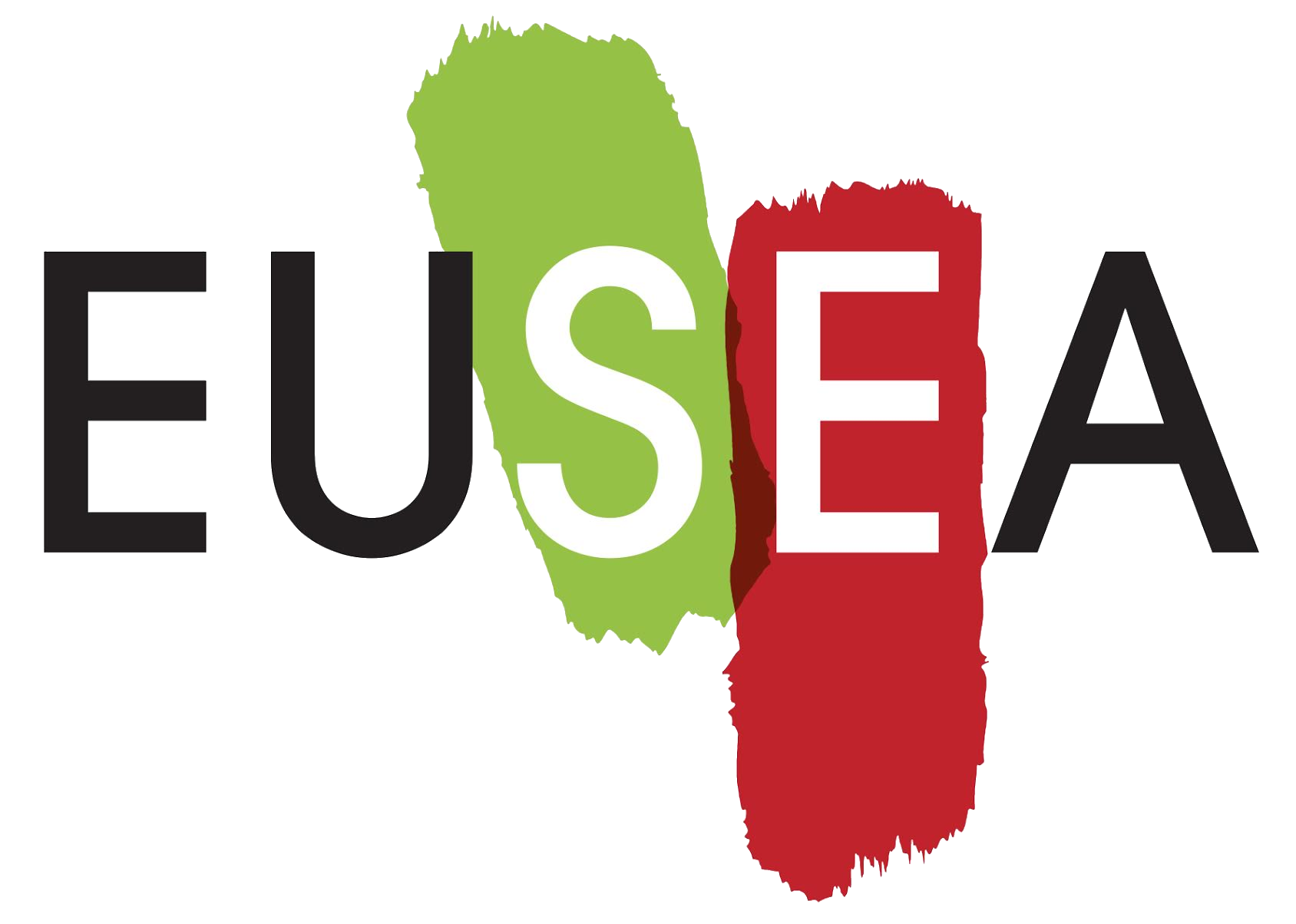Meet our new EUSEA President and the two new Board Members!
On 30 October 2020, the EUSEA General Assembly was invited to elect a new president, since the presidency of Markus Weißkopf had come to an end. The participants were also invited to elect three Board members. New in the EUSEA Board are Edward Duca, University of Malta, and Kenneth Skeldon, Wellcome Genome Campus, Cambridge. Board member Aleksandra Drecun, President of Intersection, Belgrade, was re-elected, while Philipp Burkard, Director of Science et Cité in Bern, had been re-elected in 2019. Find out more about our new President and the two new Board members!
EUSEA President Cissi Askwall

Who am I?
I am Secretary General of VA (Public & Science), based in Stockholm, Sweden. My professional background combines journalism, science communication and public engagement. I am a member of the Örebro University board and the research committee of the Royal Swedish Academy of Agriculture and Forestry. For me, it is an honor and a privilege to have been elected the new EUSEA president.
VA promotes dialogue between the public and researchers. We run scicomm and public engagement activities, and conduct studies investigating different aspects of the science – society interface. VA is a national non-profit association with both institutional and individual members, just like EUSEA.
Why and how do I engage?
I have worked within public engagement for some 20 years and been involved in numerous projects and activities, e.g. the European Researchers’ Night, the Swedish Researchers’ Grand Prix scicomm contest, citizen science initiatives, RRI and scicomm trainings, public dialogues and EU funded SwafS projects. I am also engaged in advocacy work to make research more open, inclusive and engaging to citizens, and to encourage political decisions to be informed by research.
What can I bring to EUSEA?
I truly enjoy and have been working a lot with colleagues across Europe. EUSEA offers a win-win where members’ experiences can inspire other members and EUSEA as a whole – and vice versa. This is even more obvious during the pandemic when we all face similar challenges. Let’s co-create and share innovative practices for Public Engagement, jointly fight the infodemic, and develop our Science Engagement Platform
I also want to strengthen EUSEA’s visibility in the global science engagement community, collaborate more with relevant organisations, and intensify advocacy for support, incentives and funding for Public Engagement in Europe.
New EUSEA Board Member Edward Duca, University of Malta

“Who am I”?
I’m a Science and Innovation Communication Lecturer at the University of Malta, the Editor-in-Chief of the research magazine Think, run the science communication STEAM Summer School, am involved in several large EU funded projects, and have created and managed several science communication events through the Malta Chamber of Scientists, an NGO. I have over a decade’s experience developing science communication activities and research. Science in the City is the largest activity I run, attracting 6% of Malta’s population annually.
I’ve been a member of several worldwide journalism, public engagement and scientific networks. I’ve recently been appointed as Rector’s Delegate for STEM Popularisation (Engagement), am the secretary of the Malta Chamber of Scientists and a Malta Climbing Club board member.
“Why and how do I engage?”
My passion is to work with people with different backgrounds and experiences. Many of my public engagement events and projects combine science with the arts, or entrepreneurship with design thinking, amongst others. By working with others, my team want to develop evidence for the effective communication of research that will encourage a scientifically aware society leading towards an informed democracy and active citizenship. I want to embed a culture of public engagement and research that benefits society.
“What can I bring to EUSEA”?
I hope to use my excellent networking and team building skills to strengthen EUSEA membership. I want to bring in new partners, especially from smaller countries. I am currently developing science communication toolkits for activities and events to add to EUSEA’s Science Engagement platform. This platform could unify the resources available to science communicators worldwide. Such documents can be expanded by sharing best practices through case studies assessed through peer review.
Learning from each other will enhance the science communication field. One of the largest hurdles communicators need to overcome is for theory and research findings to be quickly implemented in their practice. We also need to lobby with funding agencies to maintain and introduce science communication in every research project.
I hope that the discontinuation of the SwafS funding programme will be replaced with mainstreaming RRI in all European funding, which will mean that science communicators have to work with other academic disciplines to successfully apply for EU projects. I work on funded projects with marine researchers, social scientists, air pollution experts, and architects amongst others. The collaborative approach will help EUSEA win additional projects and the association to grow as a whole. The process could be a model example for other science communication professionals within the new funding framework, which I hope to share.
New EUSEA Board Member Ken Skeldon, Wellcome Genome Campus in Cambridgeshire, UK

Who am I?
I’m Ken Skeldon based at the Wellcome Genome Campus in Cambridgeshire, UK where I head up Public Engagement as part of Wellcome Connecting Science. I’ve also worked in the university, science centre and museum sectors. I’m originally from Scotland where I began my career as a researcher in physics working on the German-British gravitational wave detection project. I’ve been lucky to work with some inspirational people over the years, many through European projects, and I’m excited for the role EUSEA can play in our sector.
Why and how do I engage?
I’ve had a long held passion for science engagement, ever since my school days. As a research student I developed lots of activities to inspire and stimulate young peoples’ curiosity in science, delivering shows and developing resources both in the UK and further afield. In recent years, my work has shifted from frontline engagement to strategic programmes exploring how people, particularly researchers and scientists, think about engagement and how scientific institutions can, and should, value the relationships they develop with communities.
What can I bring to EUSEA
There are many big topics that EUSEA can facilitate exchange, conversation and advocacy around. For example, the past year has spotlighted more than ever the importance for proactive diversity and inclusion embedded in our work, and also how easily our norms for engagement practice can be upended by global events. I’m interested in finding ways for EUSEA members to be involved in creating new standards and approaches, benefiting from the diversity of views and experiences from the different countries and cultures that EUSEA represents. I’m also interested in building EUSEA’s profile within the UK science engagement community, where a dynamic pan-European exchange platform is timely in helping to foster collaborative ideas and sharing.





